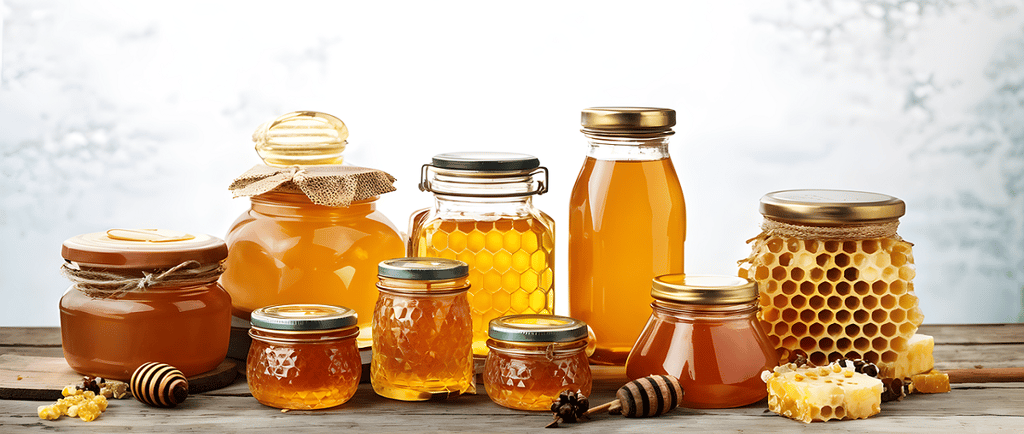Health Benefits of Honey
Honey is rich in nutrients and antioxidants and is considered a superfood. It has anti-inflammatory properties and several health benefits. Read this mini blog to learn more!


Honeybees produce honey from the nectar of flowering plants, it is a sweet syrupy fluid.
People consume honey worldwide as a natural sweetener and for medicinal properties.
Honey has been used since ancient times as a food and for making alcoholic beverages.
More than 300 varieties of honey are available worldwide. The unique taste, odor, and color of honey depends upon the nectar Bees use to produce it.
The sugar content of honey is around 80%, mainly fructose, so it should be used in moderation.
It is rich in antioxidants, vitamins, minerals, and amino acids. It is beneficial in treating cough and has anti-bacterial properties.
Honey never spoils, it can last for centuries.
The G.I. (Glycemic Index) of honey is 58, slightly lower than that of sugar which is 60. It implies that honey raises blood sugar quickly but slower than sugar.
According to USDA (United States Department of Agriculture), Honey contains the following macronutrients and vitamins.
Honey also contains several minerals which are as follows.
Pros of Honey:
· Honey contains antioxidants such as phenolic acids and flavonoids that neutralize free radicals.
· It is a healthier replacement for refined sugar.
· Moderate use of honey can increase adiponectin levels, a hormone that reduces inflammation and regulates blood sugar levels.
· Honey contains propolis, which helps control cholesterol and triglyceride levels.
· It can help in lowering blood pressure and regulating heartbeat.
· Honey helps improve blood fat levels and prevents healthy cells from dying.
· Honey can be applied to the skin to cure wounds, burns, and other skin issues.
· Honey acts as a natural remedy to treat cough and cold.
· Honey can provide relief in digestive issues like acid reflux.
· Lemon honey water can help in weight loss.
Cons of Honey:
· Children below 1 year should avoid honey due to the bacteria Clostridium which can cause infant botulism.
· Honey from poisonous plants can cause “Mad Honey Poisoning”, symptoms are nausea and vomiting.
· Honey is high-calorie food, excess eating can cause weight gain and obesity.
· Excess eating of honey increases the risk of Type 2 Diabetes and heart disease.
· Commercially available Honey can be adulterated, it is better to ensure its purity before buying.
· Sugar in honey can cause dental problems.
· Raw honey may contain traces of pollen grains, which can cause allergic reactions.
Interesting Facts
· A single Honey Bee makes only 1/12th teaspoon of honey in its lifespan.
· Honeybees can recognize individual human faces.
· Honey is the only food produced by an insect and consumed by humans and insects.
· Cats can’t taste honey, they don’t have sweet taste receptors.
· The world’s oldest honey is 5500 years old, found in Georgia.
